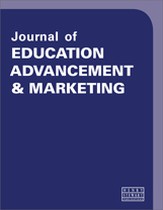Dementia and professional fundraising: What to know and what to plan
Abstract
Fundraising professionals who frequently engage with an ageing population need to be familiar with dementia, a condition affecting about 10 per cent of individuals aged 65 years and older in the US. Nearly a third of major gifts are given by individuals over the age of 65, and many individuals remain active in philanthropy well into their 80s. A recent national survey demonstrated professional fundraisers' commitment to ethical fundraising and highlighted questions about how, and whether, professional fundraisers can ethically steward longstanding relationships with an ageing client population at higher risk of dementia. Perspectives of five philanthropists diagnosed with early stage dementia included: (a) a desire to remain engaged in financial and philanthropic activities as long as possible; (b) suggestions for proactively including trusted advisers; (c) concerns about unsolicited calls and texts from unfamiliar organisations or institutions; and (d) reasons that fundraising professionals should use specific strategies to support effective and respectful communication. A novel form of documentation, the Philanthropic Directive, is proposed. Benefits of philanthropic organisations self-initiating a process to become dementia-friendly are summarised, including learning to recognise dementia signs. Finally, a simple baseline assessment tool is suggested for use as a starting point for organisations to identify potential areas of need regarding their interactions with an ageing population at higher risk of dementia. Freely available resources are suggested as training materials if areas of need are discovered.
The full article is available to subscribers to the journal.
Author's Biography
Jolene Hyppa-Martin is an associate professor at the University of Minnesota Duluth Department of Communication Sciences and Disorders and is a licensed speech-language pathologist certified by the American-Speech-Language-Hearing Association. Dr Hyppa-Martin earned her BA, BAS and MA degrees at the University of Minnesota Duluth. She earned her PhD at the University of Minnesota Minneapolis in Speech-Language-Hearing Science, with a focus on Augmentative and Alternative Communication, and has served as primary investigator for numerous studies, as author or co-author of peer-reviewed scientific publications, and has presented at numerous refereed national and international conferences. A teaching and research focus of Dr Hyppa-Martin's Augmenting Language Lab is supporting social inclusion of individuals who experience communication disorders, such as those associated with acquired conditions like dementia or neurodevelopmental conditions such as cerebral palsy. She has engaged in hundreds of hours of service to raise awareness about prevention and treatment of communication disorders, including voice banking services for individuals diagnosed with amyotrophic lateral sclerosis. Dr Hyppa-Martin teaches undergraduate and graduate courses and provides clinical supervision at the Robert F Pierce Speech-Language-Hearing Clinic.
Robert Hofmann is a native of the Twin Cities. For the past 15 years he has worked at the University of Minnesota Duluth (UMD) as a senior development officer. At UMD he has helped to raise more than US$21mn for student scholarships and programmes. He is one of only 7,400 worldwide Certified Fund Raising Executives (CFRE), an internationally recognised credential within the fundraising profession. For more than eight years, Mr Hofmann has co-led a cohort of professional fundraisers and researchers who strive to address the ethical and moral dilemma fundraisers face with an increase of dementia among faithful donors. Mr Hofmann is an active member of his Duluth community, serving as recent Past Chair for the Depot Foundation, as an active member of Rotary Club of Duluth #25, and the Knights of Columbus. He earned his Master's degree in Theatre and Business Communications from Rhode Island College and his undergraduate degree in Theatre from Saint John's University of Collegeville, MN.
Lani Mccollar is Associate Vice President of philanthropic counsel at BWF and focuses on campaign readiness and counsel, major gifts, strategic planning, assessments, implementation, and board engagement. Her experience spans multiple philanthropy sectors, including over 20 years of leadership overseeing unprecedented growth in higher education and independent K-12 schools. Prior to joining BWF, she consulted with St Mary's Foundation, Boys and Girls Clubs-Twin Cities, People Incorporated, Family Pathways, and CLUES. Lani is a national thought leader and advocate in philanthropy for organisations and their donors suspected of, or recently diagnosed with, dementia. She has presented at NACGP, AFP Global, AFP MN, MNCN, and Chicago CGP, is a board member for the Association of Fundraising Professionals, Minnesota, and a non-profit volunteer. Lani's BWF clients include Wayzata Conservancy–Panoway on Wayzata Bay, Twin Cities Habitat for Humanity, SPARK Rochester, Bolder Options, Springtide Research Institute, Hammer Residences, Epilepsy Foundation of Minnesota, Prodeo Academy, Basilica of St. Mary/Basilica Landmark, Wisconsin Lutheran High School, The Bakken Museum, Minneapolis Jewish Federation, Summit Academy OIC, and Centro Tyrone Guzman. Lani earned her BBA with honors from the University of Iowa, and a condensed MBA in Nonprofit Management from the University of St Thomas.
